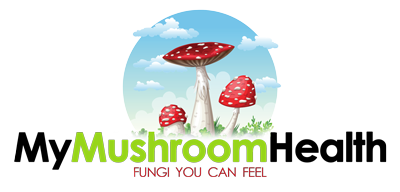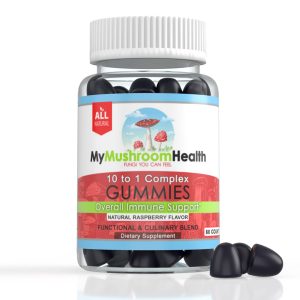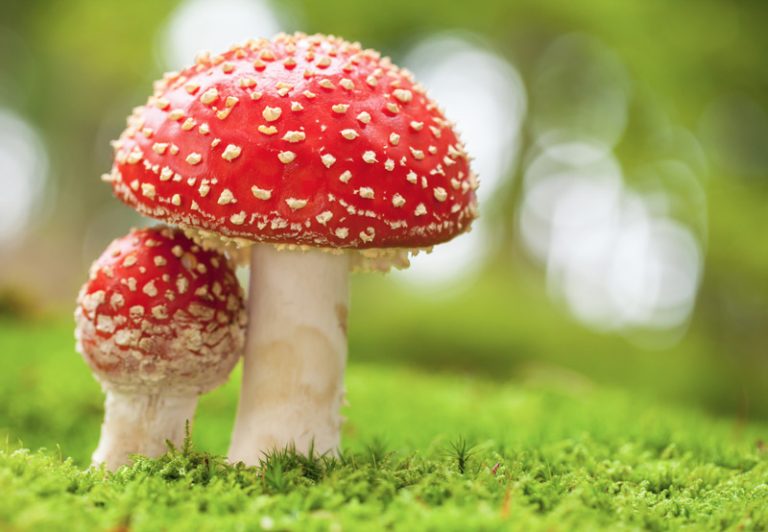Psilocybin for Psychiatric Disorders and Nicotine Addiction
Psilocybin, the psychedelic chemical compound in specific mushroom strains that causes euphoria and at high doses hallucinations, may also have impacts on fear learning and addiction withdrawal symptoms. This new area of benefit has been found according to a group of studies being presented at the Neuroscience 2023 press conference, the annual meeting of the Society for Neuroscience, on November 14 2023.
Recent Psychedelic Coumpound Research
“Recent Studies suggest that certain psychedelic compounds show great promise for treating a range of psychiatric disorders, “Frederick Barrett, director of the Johns Hopkins Center for Psychedelic and Consciousness, who studies the mechanisms underlying the effects of psychedelic drugs, said in a statement. “The research presented today is crucial in understanding what factors may influence the efficacy of these compounds, including recipients’ sex, the dose, and timing of administration.”
Psilocybin and Nicotine Withdrawal
One of the papers reveals that psilocybin can help treat nicotine withdrawal in mice, leading to fewer symptoms of withdrawal after treatment with the psychedelic compound which is just another benefit recently uncovered where numerous other benefits have already been proven.
The experimental mice were genetically modified to not express serotonin (5-HT) 2A receptors, meaning that psilocybin had no effect on them. These mice were seen to have no change in nicotine withdrawal symptoms, while non-modified mice did show a reduction in withdrawal. “Psilocybin completely reversed somatic signs due to nicotine withdrawal in mice. The effect of psilocybin was lost in the 5-HT2A mice, establishing this receptor as a potential mechanism of this attenuation. Additionally, psilocybin decreased the expression of nicotine preference in mice in the [nicotine conditioned place preference] paradigm,” the researchers wrote in this studies abstract.
This new study states that Psilocybin reduced the symptoms of nicotine withdrawal and nicotine-conditioned reward in mice by action through the 5-HT2A receptor. This is important information because past studies show the influence on the 5-HT1A receptor which is a Serotonin “reward” receptor which is a component of the receptors benefit to stress and anxiety. Until now, Psilocybin’s benefits have been largely seen as anti-anxiety. These initial studies suggest that classical psychedelics like psilocybin may be a potential effective treatment for smoking cessation.
Psilocybin for Antidepressant Effects
The other studies reveal that psilocybin and another psychedelic compounds like, dimethyltryptamine (DMT) have antidepressant effects, with some showing reduced fear. This may have implications for treatments of fear-related psychological disorders such as phobias and post-traumatic stress disorder, PTSD as this is associated with responses to fearful memories. Male mice were found to have a lower rate of fear reinstatement compared to females, however which is a very interesting component of the study.
Researchers of this study stated there was no difference in freezing behavior in fear acquisition, nor fear extinction between mice that received saline ( the placebo ) or psilocybin. Interestingly, male mice that received psilocybin showed reduced fear renewal, which was not seen in females. This impairment of fear extinction was seen in animals that also received DMT, another psychedelic drug being researched for its many benefits under responsible supervision. Further research is needed to understand any sex-dependent effects of psychedelics, as well as dose and timing of the drugs administration.
Micro-Dosing Psilocybin
Another study being presented supports these findings, as it reveals that low doses otherwise known to be Mico-Dosing of psilocybin enhanced this fear extinction differently between female and male rats. The researchers taught rats to associate an electrical shock with a sound, leading to them developing a fear response to the sound. They then removed the electric shock and measured how long it took for the mice to no longer associate the sound with fear. The researchers found that after being treated with psilocybin, male rats learned that the sound had no threat faster than before, while female rats learned this more slowly than before. This likely has something to do with the levels of Testosterone between males and females. The sex-dependent nature of this effect warrants additional research to understand why males appear to benefit more than females.
My Mushroom Health is a leading educational resource for all things mushroom and we have a wide range of Medical Studies found here on our website. We also formulate and dispense Functional mushroom products that can be found here on our website.













